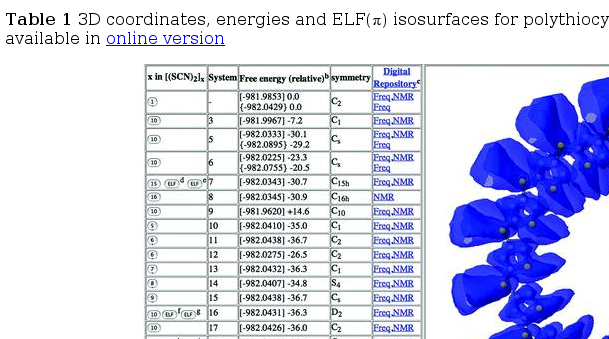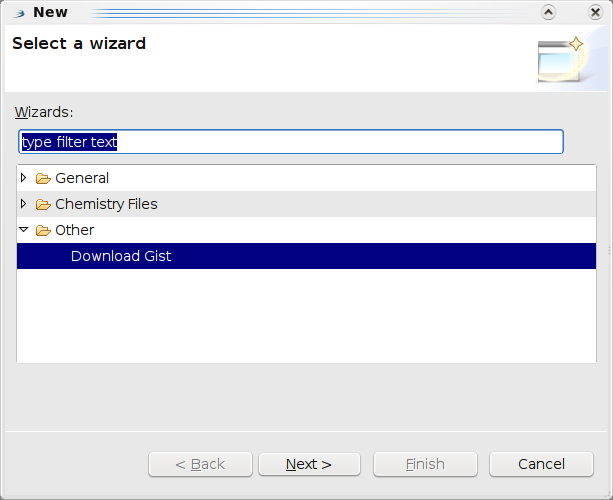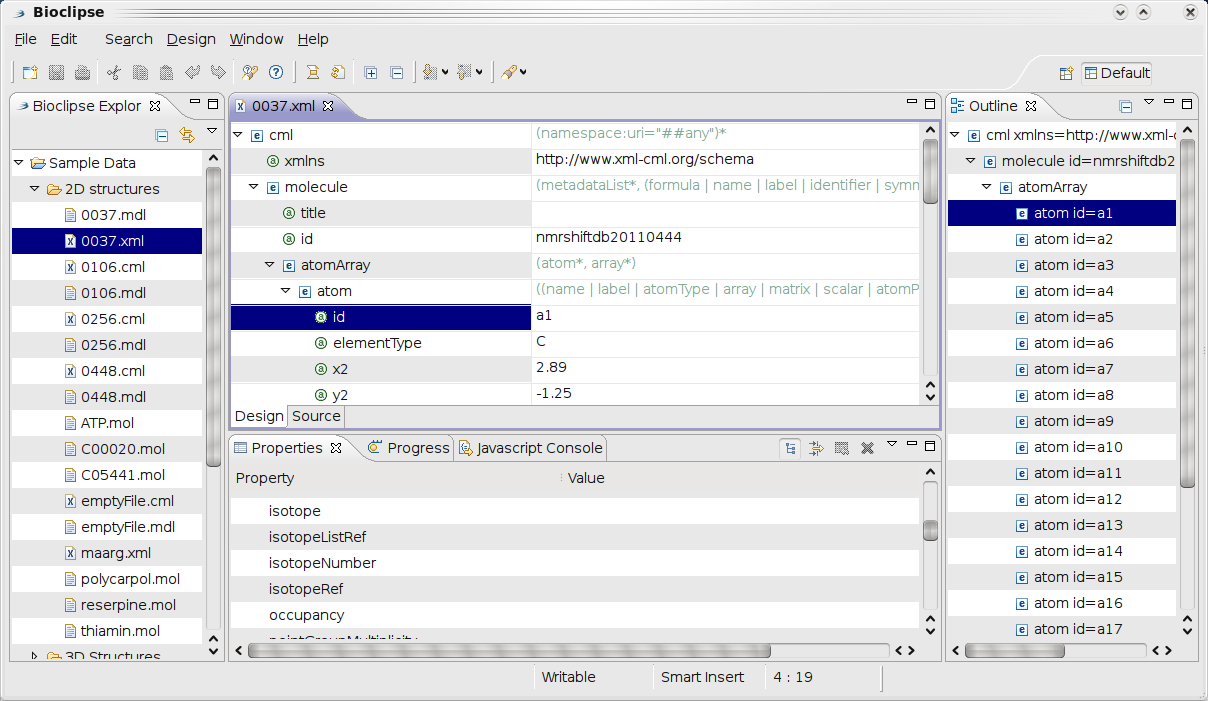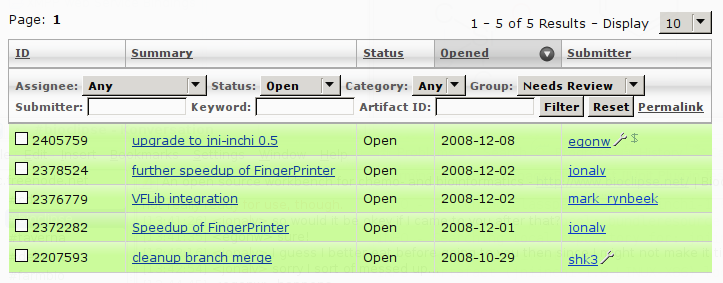-

RSC now allows Jmol in main text of publication... well, almost
Richard Kidd wrote in the ChemistryWorldBlog about Henry Rzepa to have published two papers in RSC journals where Jmol is part of the main paper, after having used Jmol in extra material in ACS journals before. The key here is that the Jmol is part of the official text… when you open the paper in a browser, you immediately get to see the Jmol live, 3D graphics! Well, so it is said in the blog. -

Bioclipse and Gist integration
As you might have read, Bioclipse has scripting support (see for example, Scripting JChemPaint ), and that we have been collection them on Gist and indexing them on Delicious with the tags bioclipse and gist. This provides a nice overview of what you can do with the current SVN version of Bioclipse2. And, hopefully, when released, allow users to quickly learn about Bioclipse features, allow people to share scripts etc. Think of it as MyExperiment.org for Bioclipse. -
Editing and Validation of PubChem XML documents
With the general framework set up for editing and validation of CML documents , it was fairly easy to support the PubChem XML file format schema too. -

Editing and Validation of CML documents in Bioclipse
One advantage of using XML is that one can rely on good support in libraries for functionality. When parsing XML, one does not have to take care of the syntax, and focus on the data and its semantics. This comes at the expense of verbosity, though, but having the ability to express semantics explicitly is a huge benefit for flexibility. -
11 Years of Debian
11 years ago, a day more or less, I bought an the special issue of CHIP which shipped Debian 1.3.1. I think I’ve tried SuSe and RedHat earlier that year, but this Debian release made me switch away from proprietary products 98% (taxes I still had to do with Windows98). Right now, I am mostly running Ubuntu, which leans heavily on the work of the Debian project. -
State of CDK 1.2.0...
The reason why I have not blogged in more than two weeks, was that I was hoping to blog about the CDK 1.2.0 release. This was originally aimed at September, slipped into October, November and then December. There were only three show stoppers (see this wiki page), one of which the IChemObject interfaces were not properly tested. -

Peer reviewed Cheminformatics #2: Code review for the Chemistry Development Kit
Peer review is an important component of open source development, and recently there was the discussion the other way around, if open source is required for peer review. Depends on your definition of peer review: No, if you restrict peer review to what it is in publishing (see Re: Open Source != peer review ); Yes, if we really want to speed up cheminformatics evolution and assume unrestricted, open peer review where reviewers can openly publish there review report with all the greasy details (see Peer reviewed Chemoinformatics: Why OpenSource Chemoinformatics should be the default ).